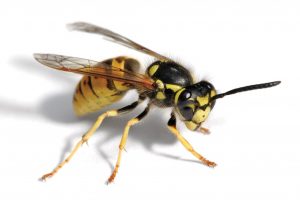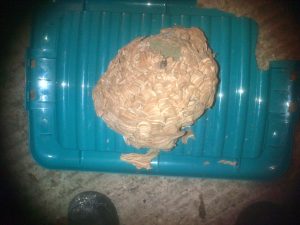Wasps in Spring
In Pests, Pests in April, Pests in May, Pests in Spring, Wasps
Due to the recent warm weather at PEST UK we are getting dozens of calls about wasps. The main feature of these calls are people saying they have Wasps, Hornets, Bees, Queen Bees or Bees coming out of their lofts. Customers even find these (they are in fact usually Queens) then look in the loft, see an old wasp nest and assume this is where these wasps are coming from. This may have been the case but removing the old nest at this time of year makes no difference to the existing wasp issue. These Queen Wasps may have emerged from the old nest in the loft but maybe from a nest in a different building. Once they leave the nest in the Autumn the Queen wasps disperse and hibernate. From then on they are leading solitary lives and not living with other wasps until they make their own nest and produce grubs, which hatch into worker wasps. These are sterile females. The males (Drones) and fertile females (Queens) are produced later in the season (usually about August) to carry on the cycle for the next year.

The problem of Queens in a house at this time of year can be treated. It is difficult to control flying insects that do not have nests but reduction can be achieved. In the case of Queen Wasps we recommend ‘fogging’ the loft with an insecticide accompanied by a residual surface insecticide spray to walls, ceilings and around windows of affected rooms. The price for this sort of treatment varies between £60 and £90 + VAT. The fogging treatment to the loft has a quick knockdown effect compared to the the longer life killing power of the residual spray. The reason the residual spray is not used in the loft is that the surfaces are either not suitable for this type of treatment (insulation) or very dusty (residual insecticides work best on clean surfaces.)

For help and advice on wasp problems call PEST UK Pest Control Services on 0800 026 0308 or 0330 100 2811

